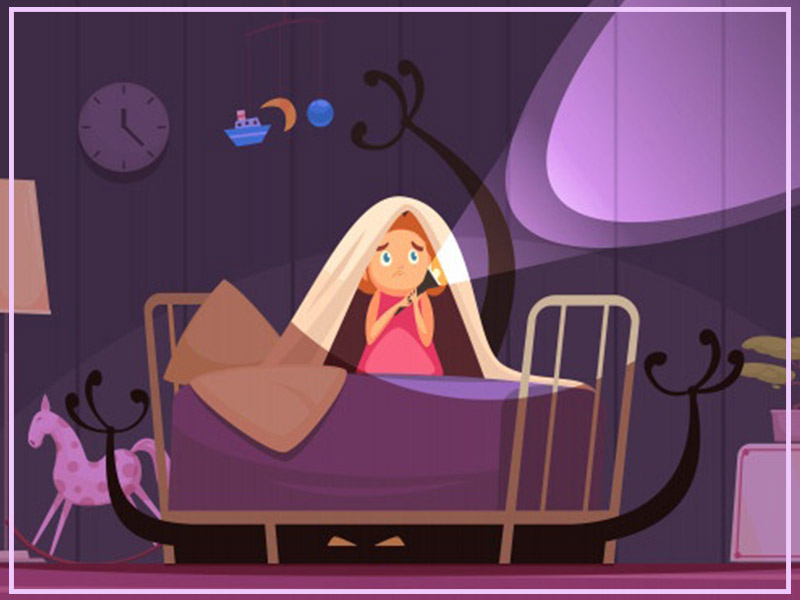
One is an emotional response to a perceived threat. The other is irrational in nature to objects and situations that aren’t dangerous or threatening in the first place. That’s the underlying difference between fear and phobia. Growing up, people develop different kinds of fear, some to height, others to darkness, and some even to spiders and lizards. Although fear and phobia might appear similar, they are distinct. While one might be helpful, the other interferes with a person’s everyday life. One doesn’t need medical intervention, while the other might need therapy for the person to cope. However, many do not know the difference between the two, which bars them to seek needed and timely intervention. Hence, to clear the difference, Onlymyhealth spoke to Dr Shweta Sharma, Clinical Psychologist & Founder, Mansa Global Foundation for Mental Health.
Difference Between Fear & Phobia

(Photo Credit: Freepik)
Explaining the difference between the two, Dr Sharma said:
- Fear is an emotional response. A person might react fearfully to a threat that is real or perceived. Fear, as opposed to phobia, can be a good thing as it helps you avoid a potentially dangerous situation.
- Phobia, on the other hand, is a response to something that is not a threat, Dr Sharma said. This is the reason phobias are sometimes called irrational fears. “The response is so intense that it interferes with your ability to function or perform daily tasks,” she said. Simply thinking about the feared item can trigger symptoms of anxiety.
Phobia affects your life as an impairment, ranging from mild to severe. If you have a phobia, you might develop a fear response even if you’re not face-to-face with the item. But fear occurs with the presence of related stimuli only, that too in a controlled manner, the psychologist explained.
According to Havard Health, phobia is a type of anxiety disorder. But why does it develop in the first place? “Phobia is usually a learned behavior or outcome from a traumatic experience,” Dr. Sharma explained. Then there are certain personality types that also play an important role in the prognosis. People with low self-esteem and poor self-confidence are higher at risk, she said.
Also read: Troubled By Fear? Know 3 Kinds Of Phobias With Reasons Why It Might Happen
How To Deal With Fear & Phobia?
Dealing with both fear and phobia are crucial and there are coping methods for both. Let’s take a look at time one-by-one:
Fear
Here’s how you can cope with fear:
- First and foremost, acknowledging and learning from fear is important to cope with it.
- Everyone encounters fear-inducing situations. Even if you don’t act how you’d hoped at the moment, reflecting on why you found the situation so overwhelming can help you be better equipped to deal with a similar situation next time.
- Also, you need to understand that fear can be a positive thing. It could be a sign that you’re doing things that are out of your comfort zone. Fear could be a sign that you’re challenging yourself, and can help you push through and find strength. Hence, if something in your daily life is causing you to fear, it might be a signal to seek self-betterment.
- Think about what you can do to meet the challenges causing fear, so you’re better prepared to meet them.
- In the end, appreciate yourself for dealing with any small fearful situation. This will help you to cope better.
Phobia
Systematic desensitisation, which is a kind of cognitive behaviour therapy (CBT), is the best treatment for phobia, Dr Sharma said. In this:
- You are taught how to relax.
- In the relaxed state, hierarchically, the mental health expert would increase the degree of exposure to fear.
How Is Phobia Diagnosed & Treated?
Phobia is diagnosed based on a thorough clinical interview and international diagnostic guidelines. Your psychiatrist or clinical psychologist will ask questions about your symptoms and take a medical, psychiatric, and social history.
Regarding treatment, exposure therapy and cognitive behavioral therapy are the most effective treatments for phobias.
- Exposure therapy focuses on changing your response to the object or situation that you fear. Gradual, repeated exposure to the source of your specific phobia and the related thoughts, feelings, and sensations may help you learn to manage your anxiety.
- Cognitive-behavioral therapy (CBT) emphasizes learning to develop a sense of mastery and confidence over your thoughts and feelings rather than feeling overwhelmed by them.
- In some cases, anti-anxiety medicines are also given to control the intensity of the symptoms.
Hence, as you can see, fear and phobia, although might look similar, have underlying differences. Phobia can interfere with your daily life, hence, might need medical intervention to deal with it. But for that, you must know what phobia is to not confuse it with fear. Timely diagnosis and treatment are then needed to deal with the phobia.
(With inputs from Dr Shweta Sharma, Clinical Psychologist & Founder, Mansa Global Foundation for Mental Health)
Photo Credit: Freepik







